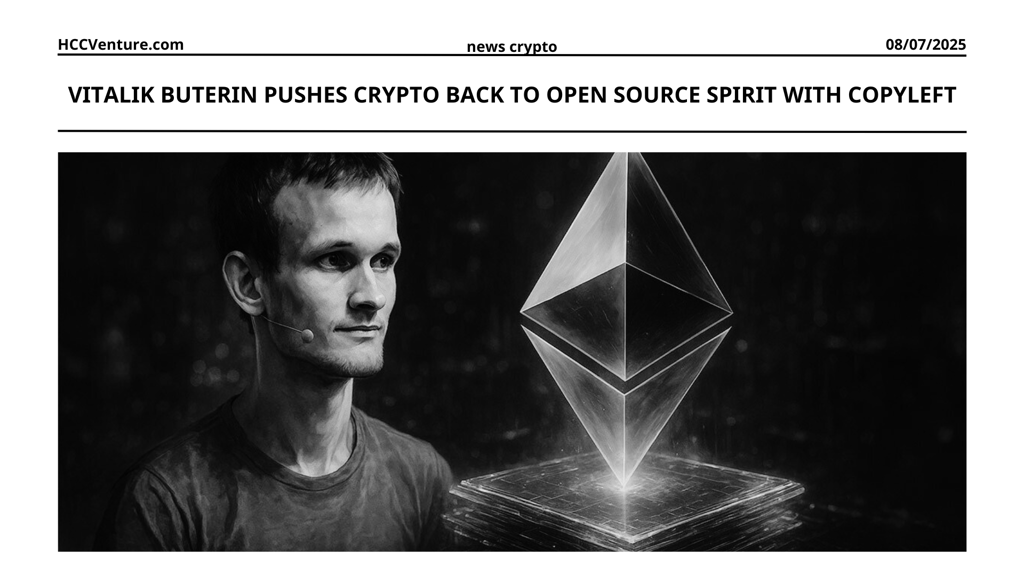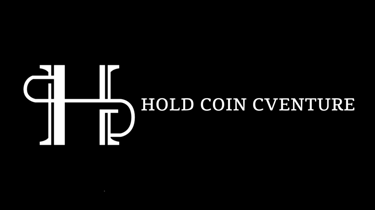Vitalik Buterin Pushes Crypto Back to Open Source Spirit with Copyleft
Vitalik Buterin, co-founder of Ethereum, has made headlines by calling on the cryptocurrency community to move to “copyleft” licenses in a blog post, highlighting the industry’s drift away from its open-source roots.
7/8/20253 min read


Vitalik Buterin's call for “copyleft”
In a blog post published on July 7, 2025, Buterin expressed concern that the cryptocurrency industry was losing the spirit of collaboration and transparency that had shaped the open source movement in its early days. He proposed moving away from “permissive” licenses (which allow the free use and modification of source code without conditions) to “copyleft” licenses like the GNU General Public License (GPL) or CC-BY-SA, which require any derivative works of the original source code to be made publicly available under the same conditions.
According to Buterin, “copyleft” ensures “reciprocity,” forcing developers to share their code, thereby maintaining openness in the ecosystem. This call comes at a time when the cryptocurrency industry is witnessing the rise of monopolistic platforms and fierce competition, with projects prioritizing profit over collective contribution. With more than 35 million ETH (28.3% of the total supply) staked on the Ethereum network, and platforms like Lido, Binance, Coinbase controlling the majority of the stake, Buterin fears that the decentralized and open-source spirit of Ethereum is under threat. Could “copyleft” be the solution to bring the industry back to its original ideals?
Why did Buterin switch from supporting “permissive” to “copyleft” licenses?
Buterin has previously advocated “permissive” licenses like MIT or CC0 because they allow anyone to use, modify, and distribute source code without restrictions, promoting widespread adoption. However, he has found that in an increasingly “competitive and mercenary” cryptocurrency landscape, relying on voluntary code sharing is no longer effective.
Large companies like Google, Huawei, and even proprietary blockchain projects tend to leverage open source to develop proprietary products, undermining the overall benefits of the community. Buterin argues that “copyleft” licenses create a “large pool of code” that can only be legally used if users agree to share the source code of derivative products. This not only prevents the concentration of power in the hands of large companies, but also encourages collective innovation.
He also cites economic theory from economist Glen Weyl, which suggests that in industries with superlinear returns to scale, tight intellectual property rights can lead to monopoly. But what is driving this change now?
This moment becomes crucial for the call for “copyleft”
Buterin’s call comes amid a number of challenges facing the cryptocurrency industry. First, increased commercialization has led to the emergence of monopolistic platforms, undermining the decentralized spirit of blockchain. For example, over 25% of staked ETH is currently controlled by Lido, while Coinbase holds over 11.4% through validators, indicating the concentration of power in the hands of a few large entities.
Second , open source has become mainstream in both traditional and crypto tech, making the adoption of “copyleft” licenses more realistic. Buterin notes that large companies are more receptive to licensing models that encourage transparency than they were 15 years ago. Finally, increased competition in the blockchain space, with networks like Solana and Binance Smart Chain challenging Ethereum’s position, has made maintaining an open source ethos imperative to protect long-term innovation. But is “copyleft” really the ideal solution?
Evaluation and Conclusion
Vitalik Buterin’s call for a move to a “copyleft” license is an attempt to return the cryptocurrency industry to its open-source roots, as competition and commercialization undermine the core values of blockchain. By requiring reciprocity in code sharing, “copyleft” can help sustain collective innovation, prevent monopolies, and preserve the decentralized spirit of the industry.
However, the implementation of this model will face challenges in terms of flexibility, community acceptance, and legal enforcement. With Buterin's influence, this call is not only a warning but also a call to action for the crypto community to work together to build a fairer, more transparent, and more sustainable ecosystem. This event could become a turning point, shaping how blockchain projects develop in the next decade.
Disclaimer: The information presented in this article is the author's personal opinion on the cryptocurrency field. It is not intended to be financial or investment advice. Any investment decision should be based on careful consideration of your personal portfolio and risk tolerance. The views expressed in the article do not represent the official position of the platform. We recommend that readers conduct their own research and consult with a professional before making any investment decisions.
Compiled and analyzed by HCCVenture
Join HCCVenture here: https://linktr.ee/holdcoincventure
See more information here :
Explore HCCVenture group
HCCVenture © 2023. All rights reserved.

Connect with us
Popular content
Contact to us
E-mail : sp_contact@hccventure.com
Register : https://linktr.ee/holdcoincventure
Disclaimer: The information on this website is for informational purposes only and should not be considered investment advice. We are not responsible for any risks or losses arising from investment decisions based on the content here.


TERMS AND CONDITIONS • CUSTOMER PROTECTION POLICY
ANALYTICAL AND NEWS CONTENT IS COMPILED AND PROVIDED BY EXPERTS IN THE FIELD OF DIGITAL FINANCE AND BLOCKCHAIN BELONGING TO HCCVENTURE ORGANIZATION, INCLUDING OWNERSHIP OF THE CONTENT.
RESPONSIBLE FOR MANAGING ALL CONTENT AND ANALYSIS: HCCVENTURE FOUNDER - TRUONG MINH HUY
Read warnings about scams and phishing emails — REPORT A PROBLEM WITH OUR SITE.
